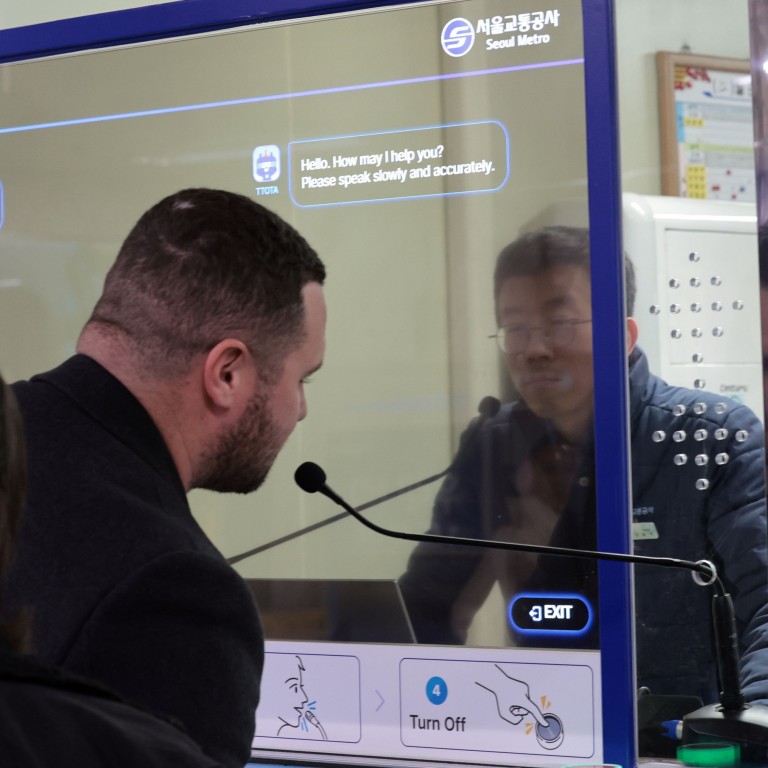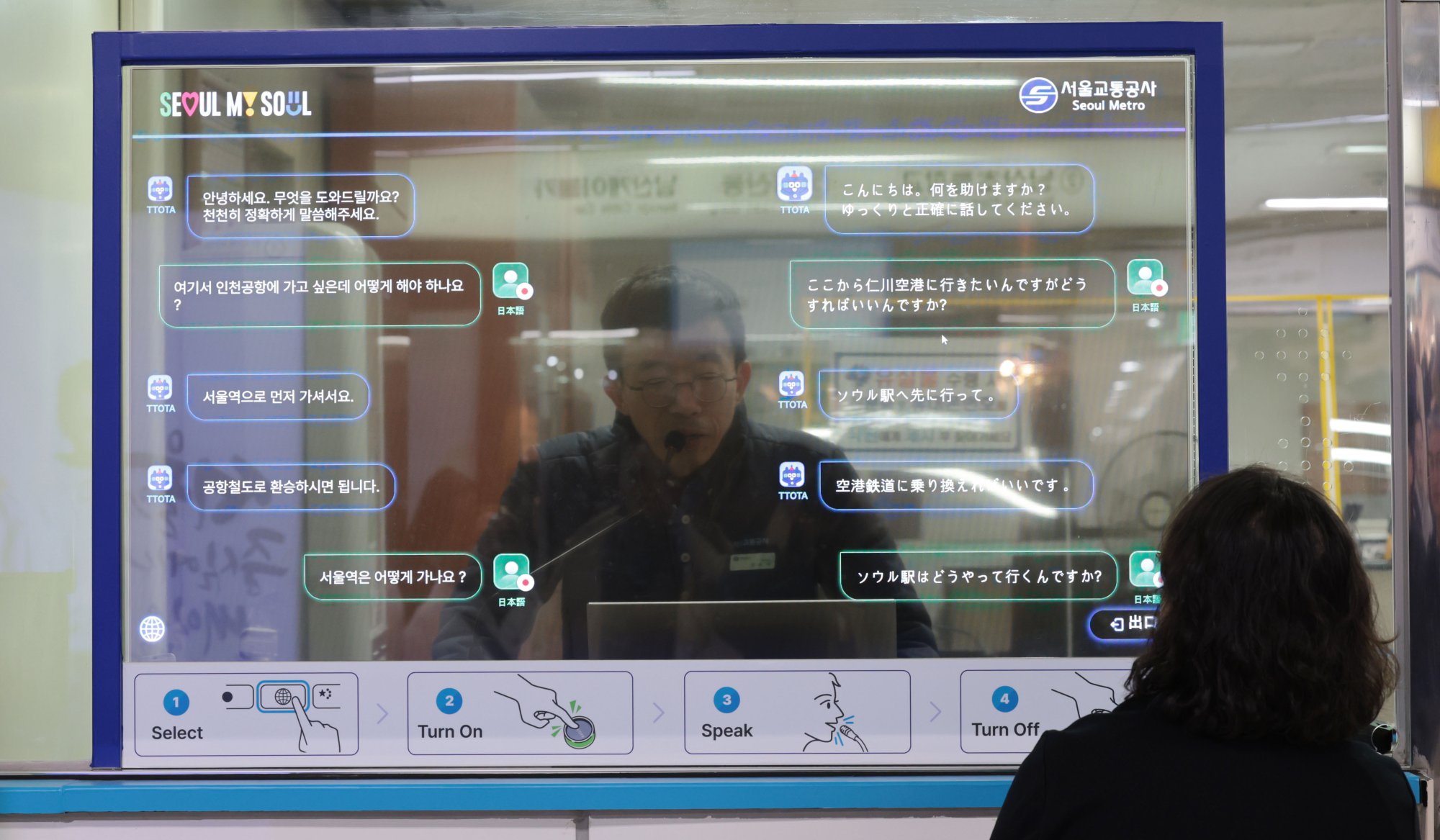
Seoul Metro tests real-time AI translation service for foreign tourists; 13 languages supported in pilot scheme
- Foreign tourists using Seoul’s Metro system may soon be able to communicate easily with staff in real time thanks to a pilot AI translation scheme
- The service, currently being tested in the South Korean capital’s Myeongdong Station, supports 13 languages, including English, Japanese and Chinese
By Jung Da-hyun
Real-time translation services for foreign tourists began on a pilot basis at Myeongdong Station, on Seoul Subway Line 4, on December 4.
Seoul Metro said the translation service, powered by artificial intelligence (AI), facilitates seamless communication between international tourists visiting the South Korean capital and metro station staff, allowing them to talk in their respective languages while facing each other through a transparent OLED display.
The service supports 13 languages: Korean, English, Japanese, Chinese, Vietnamese, Thai, Malay, Bahasa Indonesia, Spanish, French, German, Arabic and Russian.

Incorporating touch screens and both wired and wireless microphones, the service is aimed at enhancing the convenience of foreigners and improving on-site responses from station staff.
The transparent OLED display also provides a route search function and details fare prices, as well as offering information about T-Locker, Seoul Metro’s goods storage service, and T-Luggage, station luggage storage facilities.
3 of Seoul’s best ice skating rinks to visit on a winter holiday
Following on-site tests with foreigners conducted in November, Seoul Metro reported high user satisfaction.
Improvements include the use of directional microphones and noise removal technology to enhance voice recognition, particularly for proper nouns such as station names.
“By introducing this system, we expect foreigners of various nationalities visiting Korea to easily and conveniently receive subway usage information,” said Seoul Metro chief executive Baek Ho.
Myeongdong Station was chosen for the four-month pilot scheme because it is heavily used by foreign tourists. The service is available at the entrance to the customer safety office.
Assuming the pilot period is a success, the service will be expanded next year to five more stations that are also popular with foreigners: Seoul Station, Itaewon Station, Gimpo International Airport Station, Gwanghwamun Station and Hongik University Station.

